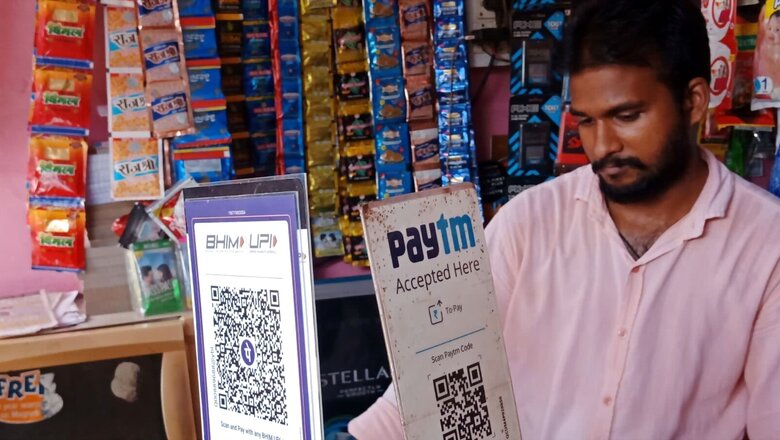
views
With businesses reconsidering their digital identities and operating models, 2023 is set to witness an acceleration towards digital payments. Innovation will drive this growth with customer preference and acceptance taking the centre stage.
This year, the sector will witness a fillip to real-time payments, an increase in collaboration between the traditional banks and the fintechs, improved access to customers and a gamut of digital and traditional payments methods for the customers to choose from. 2023 will prove to be a shaping year for payments, driving the country towards a ‘less-cash’ reality.
In this backdrop, let’s look at these five emerging trends that are set to create opportunities in the Indian payments’ ecosystem.
Buy Now Pay Later
In 2023, the customer will definitely be the king. Businesses will have to focus on delivering an affordable shopping experience to the buyers and therefore, buy now and pay later (BNPL) will become a viable option.
According to a study by Juniper Research, BNPL will continue to attract the young breed who love to shop and the older ones who don’t have access to credit cards. The study further highlights that India is set for a rapid growth in the segment, with the users projected to grow from 25 million in 2022 to 116 million by 2027.
The interesting part is that the model is growing in Tier 3 to Tier 5 cities and is going beyond electronics, mobiles, groceries and extending to essentials, healthcare, online education, insurance, and travel and even to low-ticket items besides the expensive ones.
Greater Collaboration Between Banks and Fintechs
The banking sector has been a significant growth catalyst for India becoming the world’s fifth-largest economy. Backing this growth is technology, which is increasingly becoming a major focus area for banks as they are openly embracing digitization to become more agile. This is leading to an increased collaboration between the banks the fintechs to transform data and reshape the financial sector. The collaboration is offering the banks well-established and proven tech-enabled services and on the other hand, fintech an access to a broader customer base.
Digital Banking Taking the Centre Stage
Moving into 2023, we can witness the setting up of 75 digital banking units across 75 districts of the country. The Reserve Bank of India’s recent initiative is expected to boost financial inclusion. The paperless models, these digital banking units will enable cash withdrawal and deposit via ATMs and CRMs besides facilitating the opening of bank accounts, FDs and RDs, passbook printing, mobile and internet banking, as well as the issuance of debit, credit and mass transit system cards. These units will also enable paperless loan processing to ensure seamless financial access across the country.
Contactless Payments
Another payment method that would see significant growth due to the rapid digitisation of the banking, financial services and the insurance industry. To put it to perspective, the method would allow the customers to simply wave their smartphones across the reader. This is faster and more convenient than inserting a card, making it a more secured method than the PIN. The adoption of EVM chip cards have played a great role in the growth of contactless payments in the country. This growth story has been backed by supportive regulations and the need to have a safer and easy mode of payment during the pandemic.
According to a report by Worldline India, the contactless payments in India surged six times in the last three years from 2.5 per cent in December 2018 to 16 per cent in December 2021. Further to the report, while 25 per cent of all transactions at supermarkets were contactless in 2022, the number rose to 31 per cent by January 2023.
Dominance of Mobile Wallets
Mobile wallets help you send money to other users, receive money from them and also store it. You can also pay utility bills, buy tickets, get rewards, and what not. According to a recent study by Report Ocean, India’s mobile wallet market is estimated to grow at a CAGR of 46.3 per cent, earning revenue of around $429.2 billion by the end of 2027. This growth can be attributed to the increasing number of smartphone users and growing awareness among consumers regarding the convenient payment options through mobile wallets. For merchants, these wallets call for lower set-up infrastructure and transaction fees compared to the traditional card-based payment systems.
However, limited internet accessibility and the risks associated with cybersecurity may stall the market’s growth.
(The author is the founder and managing director of Airpay)
Read all the Latest Business News here




















Comments
0 comment